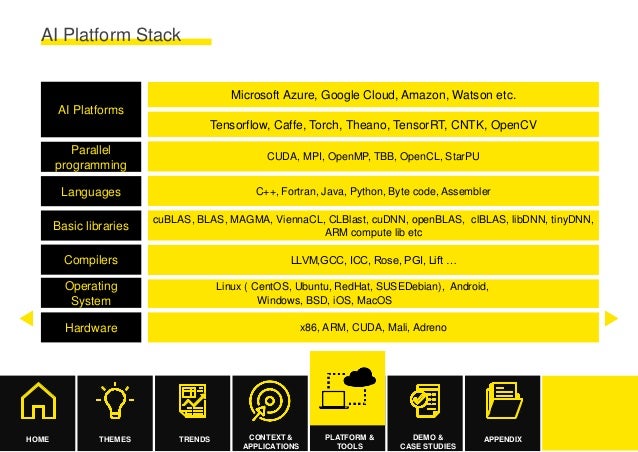Arm Assembler For Macos
Apr 24, 2020 Mac Pro introduced in 2013, plus mid-2010 or mid-2012 models with a recommended Metal-capable graphics card. To find your Mac model, memory, storage space, and macOS version, choose About This Mac from the Apple menu. If your Mac isn't compatible with macOS Mojave, the installer will let you know. To get a copy of macOS Mojave to install on an unsupported Mac, you have to be in the Apple Beta program but more importantly than that, you have to download it on a supported Mac. Jun 19, 2018 Apple’s latest iteration to its desktop operating system was announced at WWDC earlier this month. Named ‘macOS Mojave,’ the update brings with it a bevy of new features including some long-awaited things like the dark mode, and other features and cosmetic upgrades that are pretty nice.So, if you’re wondering how to get these features on a Windows 10 PC, well we’ve got your back. Mojave is the latest update to the Mac operating system.It arrived on 24 September 2018 as a free update, if you want to install it, here's how to download Mojave. Apple’s highlighting two. Styleguard for mac os mojave 10 14 5.
ARM GCC Inline Assembler Cookbook About this document. The GNU C compiler for ARM RISC processors offers, to embed assembly language code into C programs. This cool feature may be used for manually optimizing time critical parts of the software or to use specific processor instruction, which are not available in the C language. Okay, so I found a site to guide me through the installation of NASM on Mac OS X, and it said that 2.08rc1 is a 'release candidate' (thus the 'rc' part - yeah, I'm not too sharp), and that I should have downloaded the newest version that didn't have 'rc' in it, so I went back and downloaded 2.07. The platform is already supported on Mac and there's little doubt that titles on the platform will also work on an ARM-based macOS operating system. However many games will have assembler in. As part of a compiler suite. GNU Assembler (gas): GPL: many target instruction sets including ARM architecture, Atmel AVR, x86, x86-64, Freescale 68HC11, Freescale v4e, Motorola 680x0, MIPS, PowerPC, IBM System z, TI MSP430, Zilog Z80.; ASxxxx Cross Assembler (part of the Small Device C Compiler project): GPL: several target instruction sets including Intel 8051, Zilog Z80, Freescale 68HC08. ARM assembly on macOS. We've been doing ARM assembly in class and I've been loving it. My only gripe is that I have to use ARMSim on my Bootcamp partition to run Assembly code. The only instance of this condition code we have seen so far is the BNE instruction: In this case, we have a B instruction for branching, but the branch only takes place if the Z flag is 0. But ARM's ISA allows us to apply condition codes to other opcodes, too. For example, ADDEQ says to perform an addition if the Z flag is 1. One common scenario using condition codes on non-branch. Sep 11, 2013 How to Call a Function from Arm Assembler. Dave Butcher September 11, 2013 Once you move beyond short sequences of optimised Arm assembler, the next likely step will be to managing more complex, optimised routines using macros and functions. Macros are good for short repeated sequences, but often quickly increase the size of your code.
- Arm Assembler For Macos Mac
- Arm Assembler For Macos Pc
- Arm Assembler For Macos Mac
- Arm Assembler For Macos Windows 7
- Arm Assembler Mac Os
Technical Support
On-Line Manuals
Assembler User Guide
PrefaceArm Assembler For Macos Mac
Overview of the AssemblerOverview of the ARM ArchitectureStructure of Assembly Language ModulesWriting ARM Assembly LanguageCondition CodesUsing the AssemblerSymbols, Literals, Expressions, and OperatorsVFP ProgrammingAssembler Command-line OptionsARM and Thumb InstructionsVFP InstructionsDirectives ReferenceAlphabetical list of directivesAbout assembly control directivesAbout frame directivesALIASALIGNAREAARM or CODE32ASSERTATTRCNCODE16COMMONCPDATADCBDCD and DCDUDCDO DCFD and DCFDUDCFS and DCFSUDCIDCQ and DCQUDCW and DCWUDN and SN
DCFD and DCFDUDCFS and DCFSUDCIDCQ and DCQUDCW and DCWUDN and SNArm Assembler For Macos Pc
ENDENDFUNC or ENDPENTRYEQUEXPORT or GLOBALEXPORTASFIELDFRAME ADDRESSFRAME POPFRAME PUSHFRAME REGISTERFRAME RESTOREArm Assembler For Macos Mac
FRAME RETURN ADDRESSFRAME SAVEFRAME STATE REMEMBERArm Assembler For Macos Windows 7
FRAME STATE RESTOREFRAME UNWIND ONFRAME UNWIND OFFFUNCTION or PROCGBLA, GBLL, and GBLSGET or INCLUDEIF, ELSE, ENDIF, and ELIFIMPORT and EXTERNINCBININFOKEEPLCLA, LCLL, and LCLSLTORGMACRO and MEND MAPMEXITNOFPOPTRELOC
MAPMEXITNOFPOPTRELOCArm Assembler Mac Os
REQUIREREQUIRE8 and PRESERVE8RLISTRNROUTSETA, SETL, and SETSSPACE or FILLTHUMBTHUMBXTTL and SUBTWHILE and WENDVia File Syntax| Non-Confidential | PDF version | ARM DUI0379H | ||
| ||||
12.52 MACRO and MEND
The MACRO directive marks the start of the definition of a macro. Macro expansion terminates at the MEND directive.
Syntax
labelmacronamecondparameterUsage
WHILE..WEND loopsor IF..ENDIF conditions within a macro,they must be closed before the MEND directiveis reached. You can use MEXIT to enable anearly exit from a macro, for example, from within a loop.$label, $parameter or $cond can be used in the same way as other variables. They are given new values each time the macro is invoked. Parameters must begin with $ to distinguish them from ordinary symbols. Any number of parameters can be used.$label$cond parameter for condition codes. Use the unary operator :REVERSE_CC: to find the inverse condition code, and :CC_ENCODING: to find the 4-bit encoding of the condition code.Examples
LCLS or GBLS variable and pass this variable as an argument instead of . For example:Related concepts
Related reference
| Non-Confidential | PDF version | ARM DUI0379H |
| Copyright © 2007, 2008, 2011, 2012, 2014-2016 ARM. All rights reserved. |
ProductsDevelopment Tools | Hardware & Collateral | Downloads | Support | Contact |
Best scanner for mac catalina. Cookie Settings Terms of Use Privacy Accessibility Trademarks Contact Us Feedback Copyright © 2005-2019 Arm Limited (or its affiliates). All rights reserved. | ||||